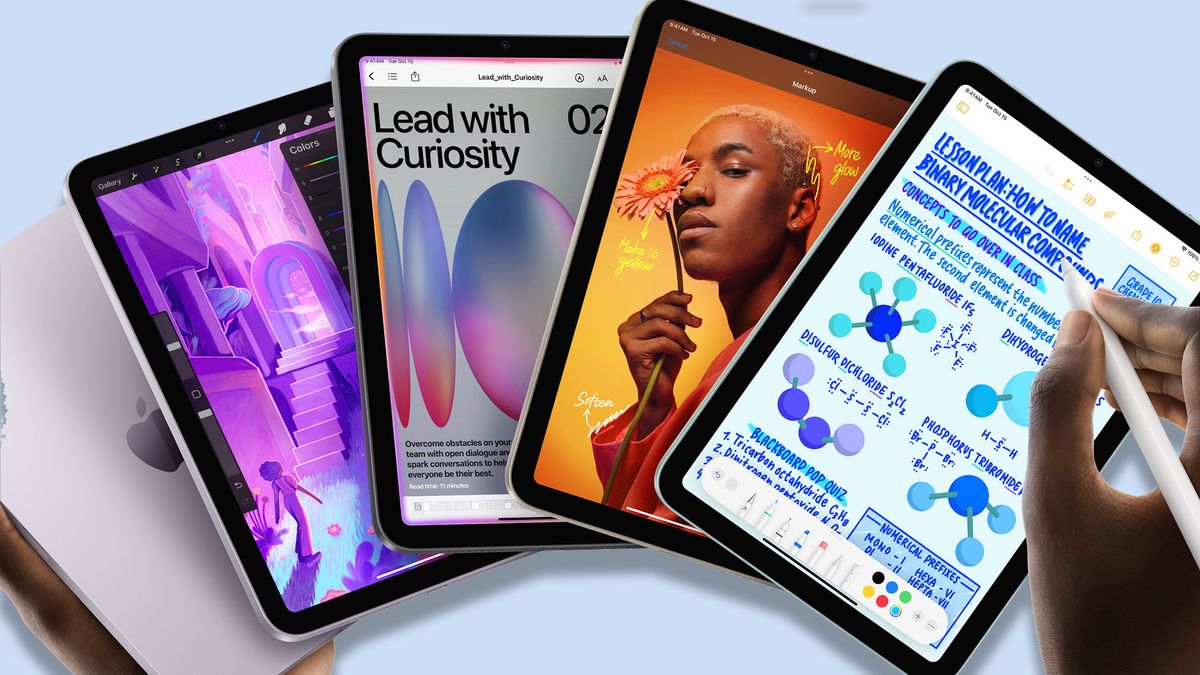After being long tipped for an imminent refresh, last week the iPad mini 7 became the third Apple-branded tablet out the gate in 2024, with a low-key announcement outlining a handful of small but welcome hardware improvements.
But for all the upgraded storage, boost to Wi-Fi 6E and jump to (a slightly downgraded) A17 Pro chipset are welcome, there’s one improvement that Apple hasn’t explicitly mentioned which could be part of the hardware.
On the latest edition of the Six Colors podcast, co-host Jason Snell revealed that — as previously predicted — the iPad mini 7 finally deals with the “jelly scrolling” issue that irked owners of its predecessor when holding the tablet in portrait mode.
In the segment first highlighted by MacRumors, Snell revealed his understanding that an unspecified change has been made to the iPad mini’s display hardware, with the “implication” that the change was to fix jelly scrolling. “My guess is it’s different,” he said. “And maybe better. And maybe gone.”
For the uninitiated, jelly scrolling is where one half of the screen refreshes at a visibly different speed to the other, creating a slightly jarring wobble effect when in motion — for example scrolling down a web page.
It’s a difficult effect to describe, but this video from Vincent Teoh demonstrates what’s happening at super slow-mo speeds, which explains why some people find scrolling on the iPad mini 6 an uncomfortable experience.
One theory as to why it’s especially prominent on the iPad mini 6 was revealed in an iFixIt teardown video. The controller board in charge of the display is mounted vertically, when it was placed horizontally in previous generations, seemingly changing how the screen is refreshed (left to right, rather than top to bottom).
That means you won’t notice jelly scrolling if browsing the web in landscape mode when both the scrolling and refreshing in tandem, but that just isn’t the way most people hold the iPad mini when reading web content.

We won’t know for sure how effectively the problem has been addressed until the tablet is in early adopters’ hands next week, but it would be surprising if Apple hadn’t sought to minimize it in some way — even if it’s just moving the controller board. While Apple would point out that jelly scrolling is normal behavior for an LCD display, that didn’t prevent talk of a class action lawsuit targeting the iPad mini 6 specifically.
That said, as Teoh explains, one way for Apple to make jelly scroll a non-issue would be to upgrade the mini to a ProMotion 120Hz display — something the company has failed to do this time around. As the iFixIt video shows, jelly scrolling is present on the iPad Pro with its vertically mounted control board too, but the refresh rate is so high that it’s not visible unless shown through slowed-down footage.
We should have a full review of the iPad mini 7 soon, but in the meantime here are five reasons our computing writer, Tony Polanco, is excited for its arrival.

